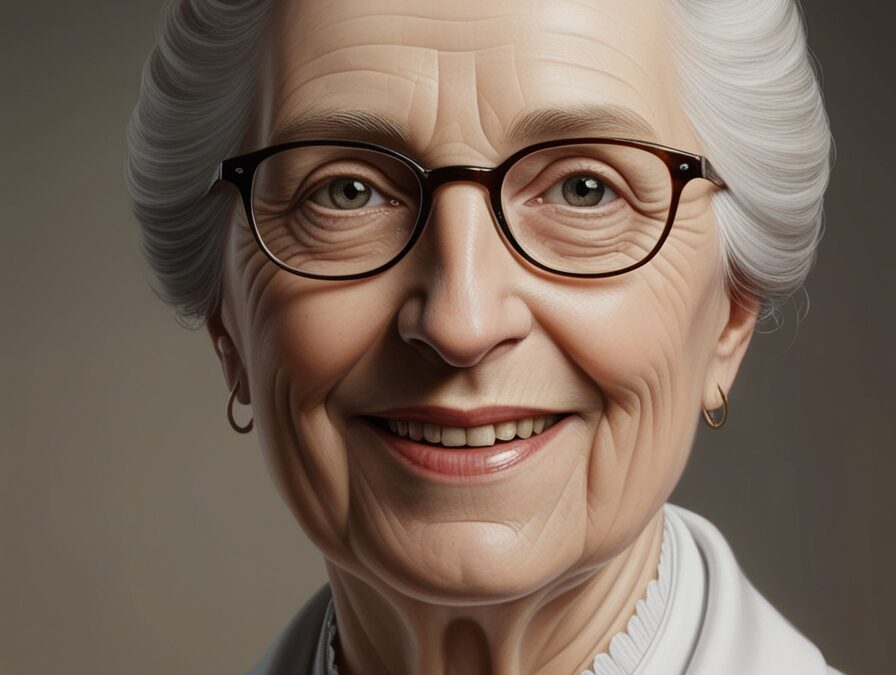
by hospicekeys | Apr 6, 2025 | Hospice Research Articles
Abstract
And the Oscar, Emmy, BAFTA… goes to… is a phrase that exemplifies the prestigious professional and public recognition of achievement in television and film production. Each year, the various academies’ annual awards ceremonies identify, reward, celebrate and commemorate the best contributions to both the big and small screen industries, often with glittering and theatrical stage shows and occasional celebrity controversy.
Link to Full Article
Link to article: https://tinyurl.com/mr7ub7yb

by hospicekeys | Apr 6, 2025 | Hospice Research Articles
Abstract
With an aging population, approximately 58 million people in the United States find themselves stepping into caregiving roles for others, especially as healthcare costs rise and facility-based care options become less accessible. Among these caregivers, Gen Z and Millennial individuals represent a significant, yet often overlooked, demographic. These younger
generations often balance caregiving responsibilities with other life demands, such as starting and developing their careers, completing their education, or raising young children. Understanding the unique challenges they face and the resources they require is crucial for shaping systems that support timely referrals, admissions and care.
While 100% of the Gen Z and Millennials who participated in this Transcend research have personal experience caring for a seriously ill family member or friend, 67% have directly been involved in making healthcare decisions for an aging adult or someone living with a serious illness in the past five years. This finding clearly demonstrates that the demands of caregivers are not exclusive to any one generation.
To ensure comprehensive support, home-based care organizations must shift their view and hone their strategies to connect with the distinct needs of caregivers from multiple generations. By doing so, organizations can offer more effective resources that enhance the overall impact of the care provided while building a strong reputation in the community with current and future healthcare decision-makers.
Link to Full Article
Link to article: https://tinyurl.com/55yywd7h

by editor | Mar 9, 2025 | Hospice Research Articles
Abstract
Palliative care aims to improve the quality of life for seriously ill individuals and their caregivers by addressing their holistic care needs through a person- and family-centered approach. While there have been growing efforts to integrate Artificial Intelligence (AI) into palliative care practice and research, it remains unclear whether the use of AI can facilitate the goals of palliative care. In this paper, we present three hypothetical case examples of using AI in the palliative care context, covering machine learning algorithms that predict patient mortality, natural language processing models that detect psychological symptoms, and AI chatbots addressing caregivers’ unmet needs. Using these cases, we examine the ethical dimensions of utilizing AI in palliative care by applying five widely accepted moral principles that guide ethical deliberations in AI: beneficence, nonmaleficence, autonomy, justice, and explicability. We address key ethical questions arising from these five core moral principles and analyze the potential impact the use of AI can have on palliative care stakeholders. Applying a critical lens, we assess whether AI can facilitate the primary aim of palliative care to support seriously ill individuals and their families. We conclude by discussing the gaps that need to be further addressed in order to promote ethical and responsible AI usage in palliative care
Link to Full Article
Link to article: https://tinyurl.com/76kny69m

by editor | Dec 8, 2024 | Hospice Research Articles
Abstract
Dame Cicely Saunders was a pioneer in palliative care and the founder of the modern hospice movement. Her visionary work, particularly in establishing St. Christopher’s Hospice in 1967, reshaped the way healthcare professionals approach the care of patients with life-limiting illnesses. She emphasized a holistic approach that addresses not only physical pain but also the emotional, social, and spiritual needs of patients. Her contributions have left an indelible mark on the medical field, leading to the global expansion of palliative care services and their integration into various medical specialties. Today, palliative care and hospice services are recognized for enhancing the quality of life for patients and their families, focusing on quality over quantity of life, promoting dignity in dying, respecting patient autonomy, and supporting patients in creating a meaningful legacy.
Link to Full Article
Link to article: https://tinyurl.com/76kny69m

by editor | Dec 8, 2024 | Hospice Research Articles
Abstract
Objectives:
Published research in disparities in advance care planning, palliative, and end-of-life care is limited. However, available data points to significant barriers to palliative and end-of-life care among minority adults. The main objective of this scoping review was to summarize the current published research and literature on disparities in palliative and hospice care and completion of advance care planning and directives among non-Hispanc Blacks.
Methods:
The scoping review method was used because currently published research in disparities in palliative and hospice cares as well as advance care planning are limited. Nine electronic databases and websites were searched to identify English-language peer-reviewed publications published within last 20 years. A total of 147 studies that addressed palliative care, hospice care, and advance care planning and included non-Hispanic Blacks were incorporated in this study. The literature review include manuscripts that discuss the intersection of social determinants of health and end-of-life care for non-Hispanic Blacks. We examined the potential role and impact of several factors, including knowledge regarding palliative and hospice care; healthcare literacy; communication with providers and family; perceived or experienced discrimination with healthcare systems; mistrust in healthcare providers; health care coverage, religious-related activities and beliefs on palliative and hospice care utilization and completion of advance directives among non-Hispanic Blacks.
Discussion:
Cross-sectional and longitudinal national surveys, as well as local community- and clinic-based data, unequivocally point to major disparities in palliative and hospice care in the United States. Results suggest that national and community-based, multi-faceted, multi-disciplinary, theoretical-based, resourceful, culturally-sensitive interventions are urgently needed. A number of practical investigational interventions are offered. Additionally, we identify several research questions which need to be addressed in future research.
Keywords: palliative care, hospice care, advance care planning, advance directives, non-Hispanic blacks, disparity, mistrust, discrimination, religion and religiosity
Link to Full Article
Link to Article: https://tinyurl.com/bd85zaf4

by editor | Dec 8, 2024 | Hospice Research Articles
Abstract
The Medicare hospice program is intended to provide palliative care to terminal patients, but
patients with long stays in hospice are highly profitable, motivating concerns about overuse
among the Alzheimer’s and Dementia (ADRD) population in the rapidly growing for-profit
sector. We provide the first causal estimates of the effect of for-profit hospice on patient spending
using the entry of for-profit hospices over twenty years. We find hospice has saved money for
Medicare by offsetting other expensive care among ADRD patients. As a result, policies limiting
hospice use including revenue caps and anti-fraud lawsuits are distortionary and deter cost-saving
admissions.
Read the Full Article
Link to full Article: https://tinyurl.com/43ffsufm






